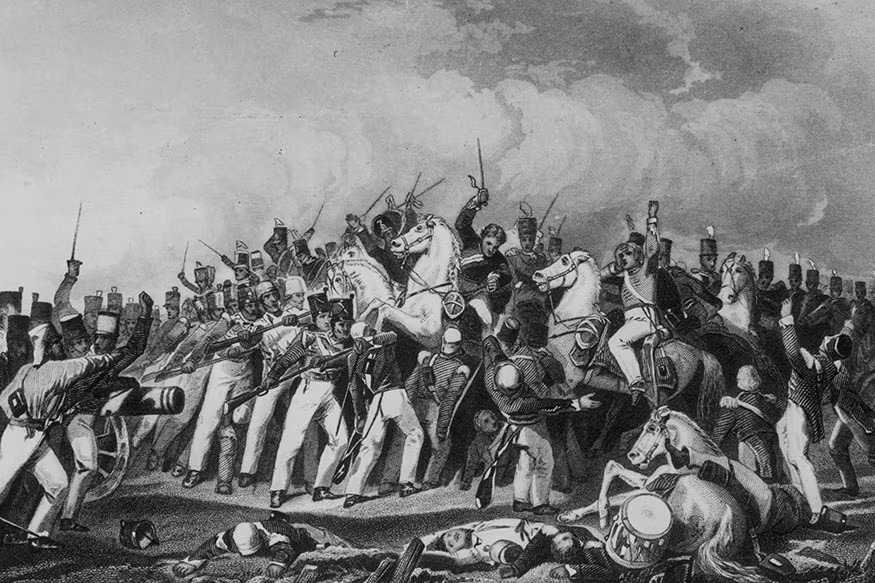The Indian Rebellion of 1857: The First War of Indian Independence
History Indian HistoryPosted by NewAdmin on 2025-01-30 09:17:11 |
Share: Facebook | Twitter | Whatsapp | Linkedin Visits: 23

The Indian Rebellion of 1857, also known as the First War of Indian Independence, was a pivotal event in the history of India’s resistance to British colonial rule. Beginning in Meerut on May 10, 1857, it quickly spread to other parts of northern and central India, with significant uprisings in cities like Delhi, Kanpur, and Lucknow. The rebellion was sparked by a combination of long-standing grievances against the British East India Company, social and religious reforms, and the immediate cause of the Cartridge Controversy. The British had introduced new Enfield rifles, and the cartridges were rumored to be greased with animal fat, offending both Hindu and Muslim soldiers, who believed it violated their religious sensibilities.
The rebellion was initially led by Indian sepoys (soldiers in the British army) who rose up against their British officers in Meerut. From there, the movement spread, with prominent leaders like Mangal Pandey, Rani Lakshmibai of Jhansi, Nana Saheb, and Begum Hazrat Mahal playing critical roles in the uprising. The rebels sought to oust the British and restore the Mughal emperor Bahadur Shah Zafar to the throne, although the rebellion lacked coordination and clear leadership across its widespread territories.
The British response was swift and brutal. Under the leadership of Major General Sir Colin Campbell, the British forces crushed the rebellion with overwhelming military force. The siege of Delhi, the recapture of Kanpur, and the subsequent retaliation against rebel-held towns led to massive casualties, particularly among civilians. In the aftermath of the rebellion, the British government took direct control over India, dissolving the East India Company and establishing the British Raj in 1858.
Although the rebellion was ultimately suppressed, it had lasting consequences. It marked the first large-scale resistance against British rule, sowing the seeds of future movements for Indian independence. The rebellion led to significant changes in British colonial policy, with reforms in military recruitment, governance, and the treatment of Indian rulers. It also fostered a sense of Nationalism and unity among Indians, uniting people across different regions, religions, and classes against a common colonial power. The 1857 rebellion remains a symbol of India’s enduring fight for freedom and self-determination.
Search
Categories
Recent News
- Chow Mein Chaos: Students' Suspension Sparks Controversy
- Hyderabad's Digital Safety Townhall: Unveiling Cyber Scams
- Hyderabad's Drug-Free New Year's Eve: A City's Vigilant Stand
- Mainpuri Murder: Taunts Turn Fatal in UP
- Political Firestorm: Rahul Gandhi's "Traitor" Accusation Sparks BJP Outrage
- Delhi Police Uncover Radical Links in Protester Arrests
- From Hobby to Thriving Business: The T-Shirt Startup's Success Story
- Rajasthan's Ram Katha U-Turn: Teachers Recalled from Religious Event
Popular News
- Navigating IPO Market Dynamics Amid Volatility and Regulatory Changes
- Massive Worldwide Microsoft Outage Disrupts Multiple Sectors
- Panjapur Bus Stand to Reshape TNSTC Routes
- తెలుగుదేశం పార్టీ - పేదరికాన్ని నిర్మూలించడంలో వాగ్దానం
- Universities Embrace Remote Learning Technologies Amidst Ongoing Pandemic